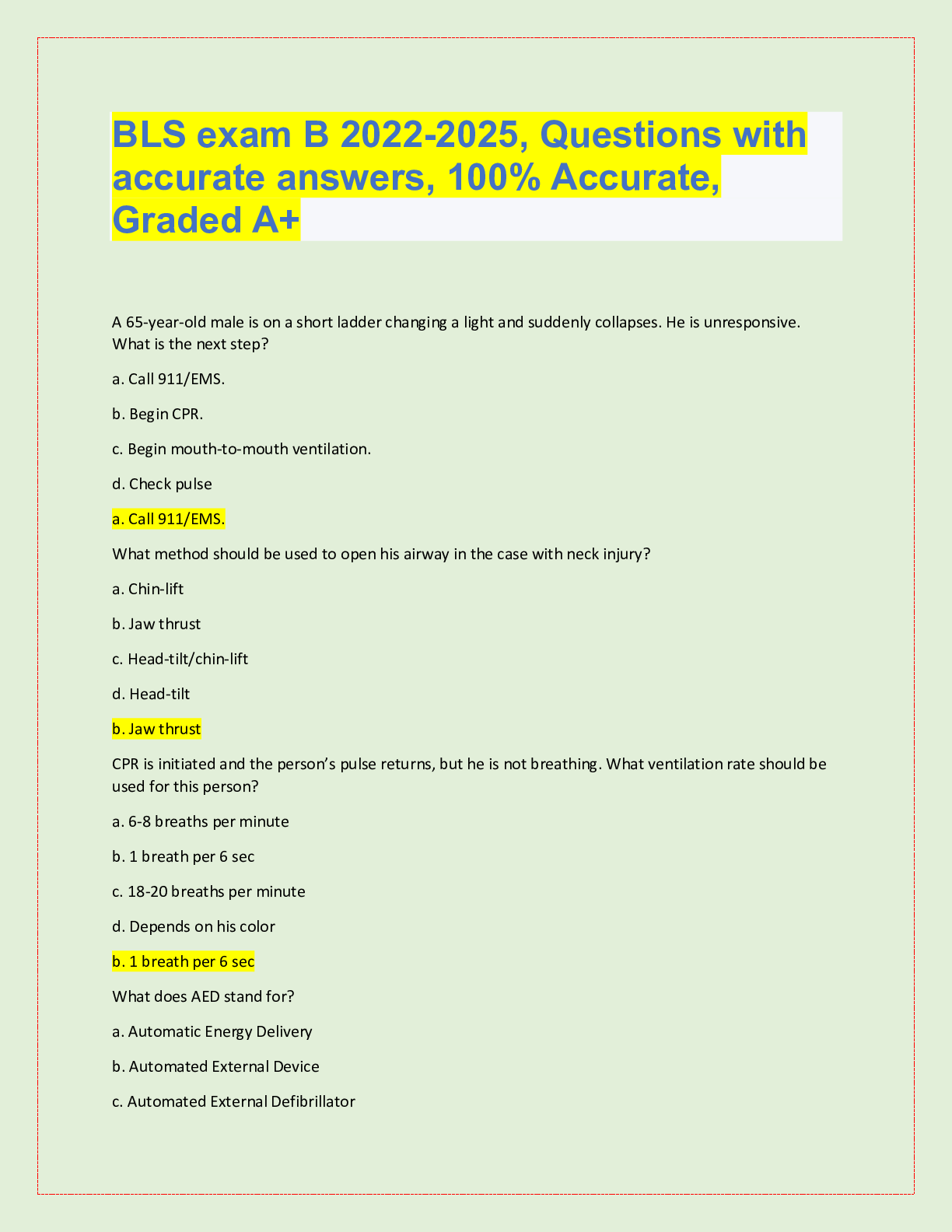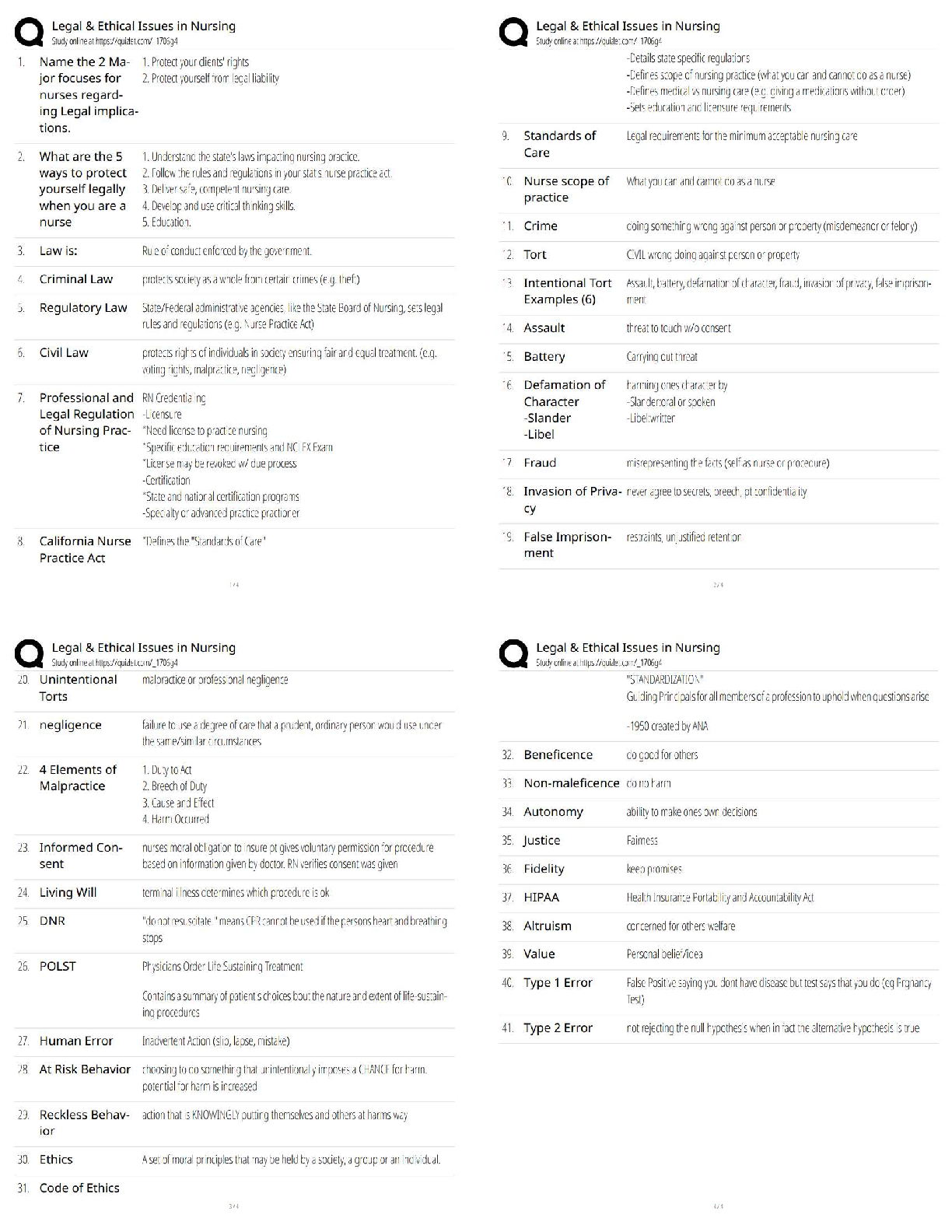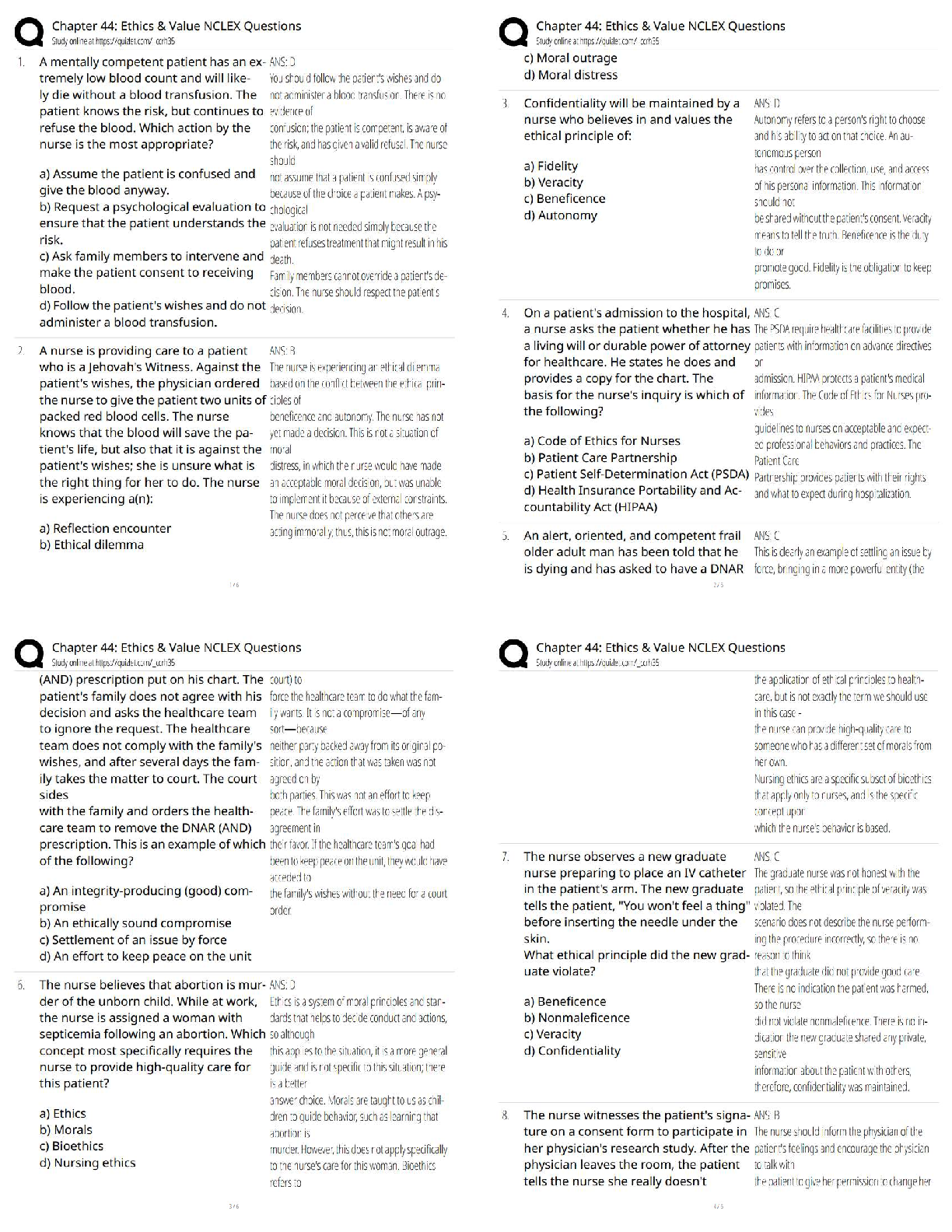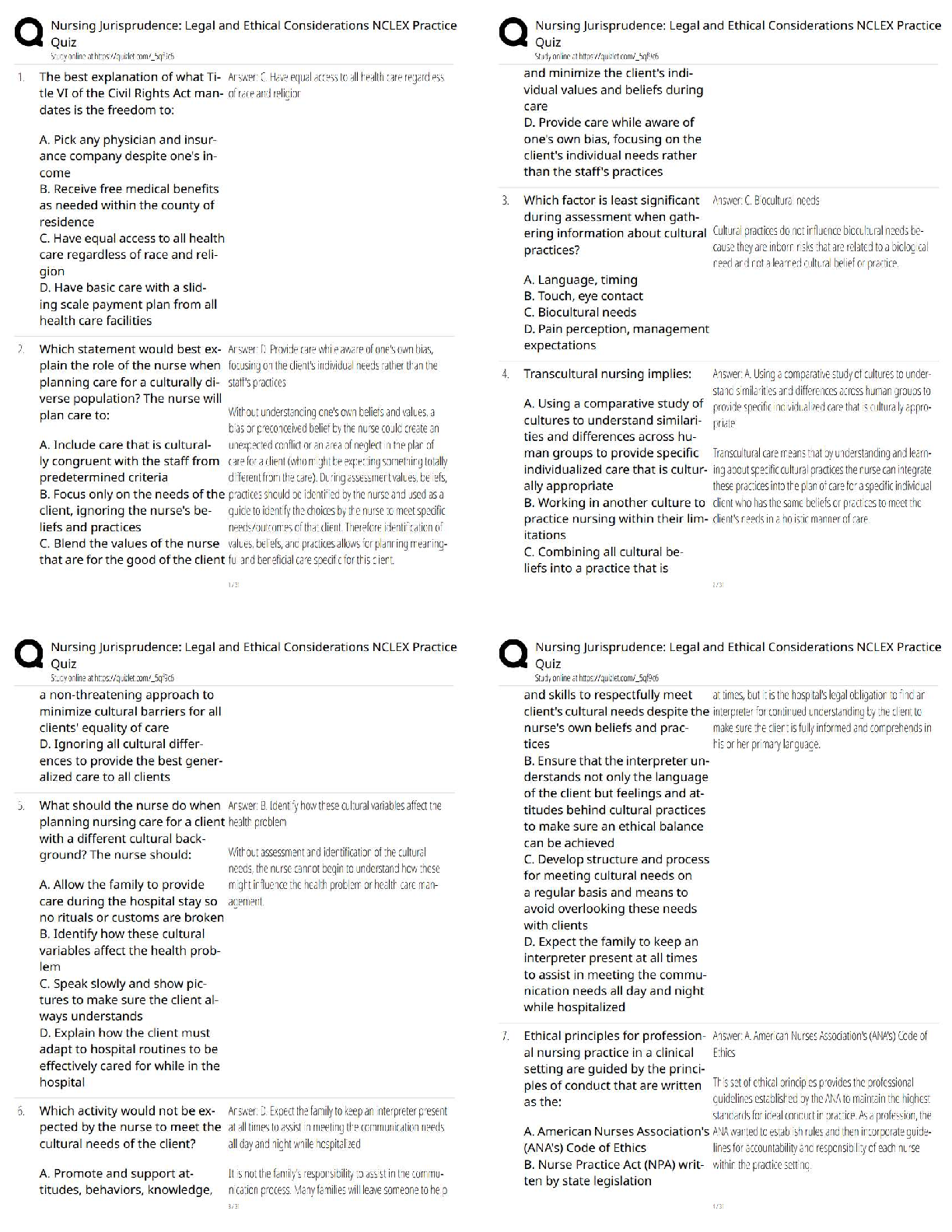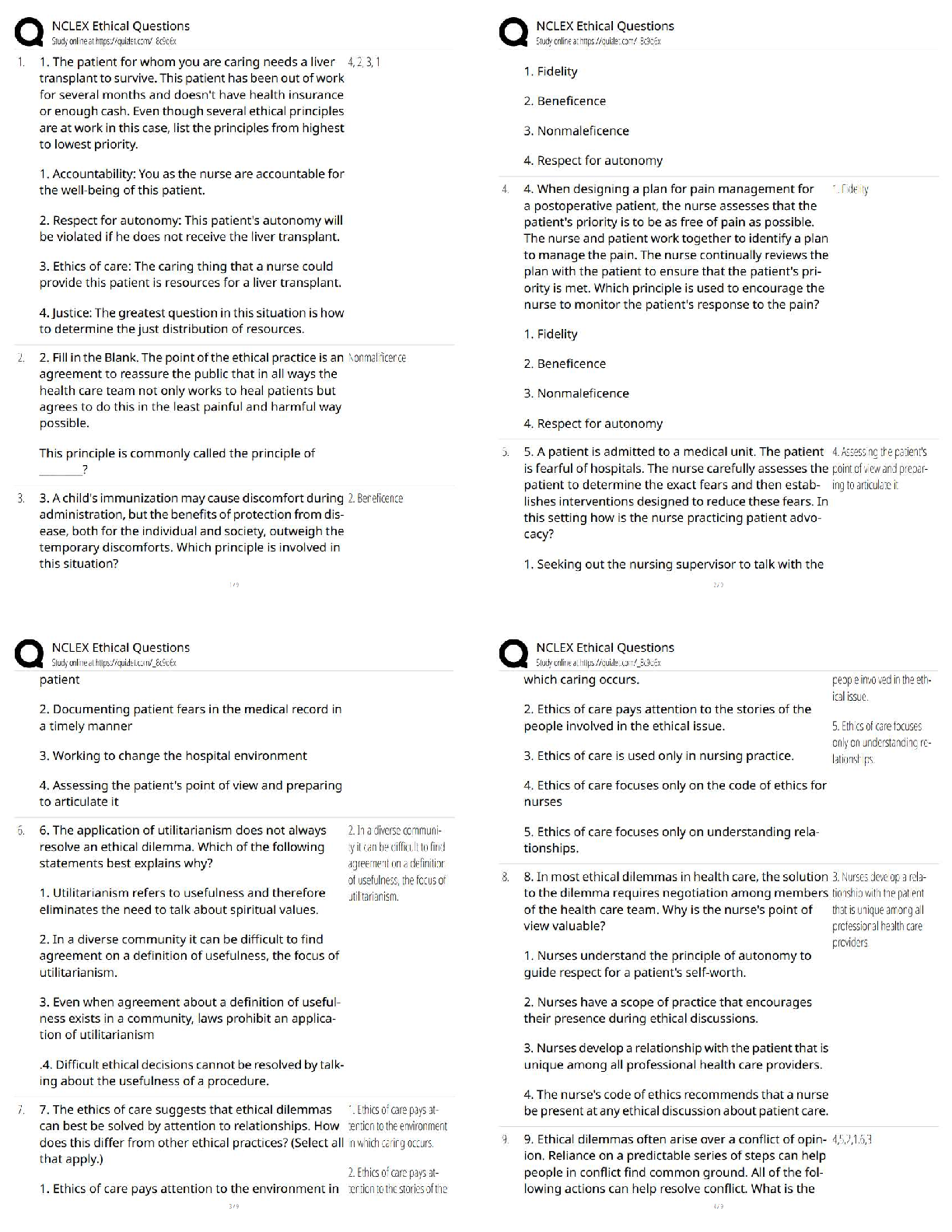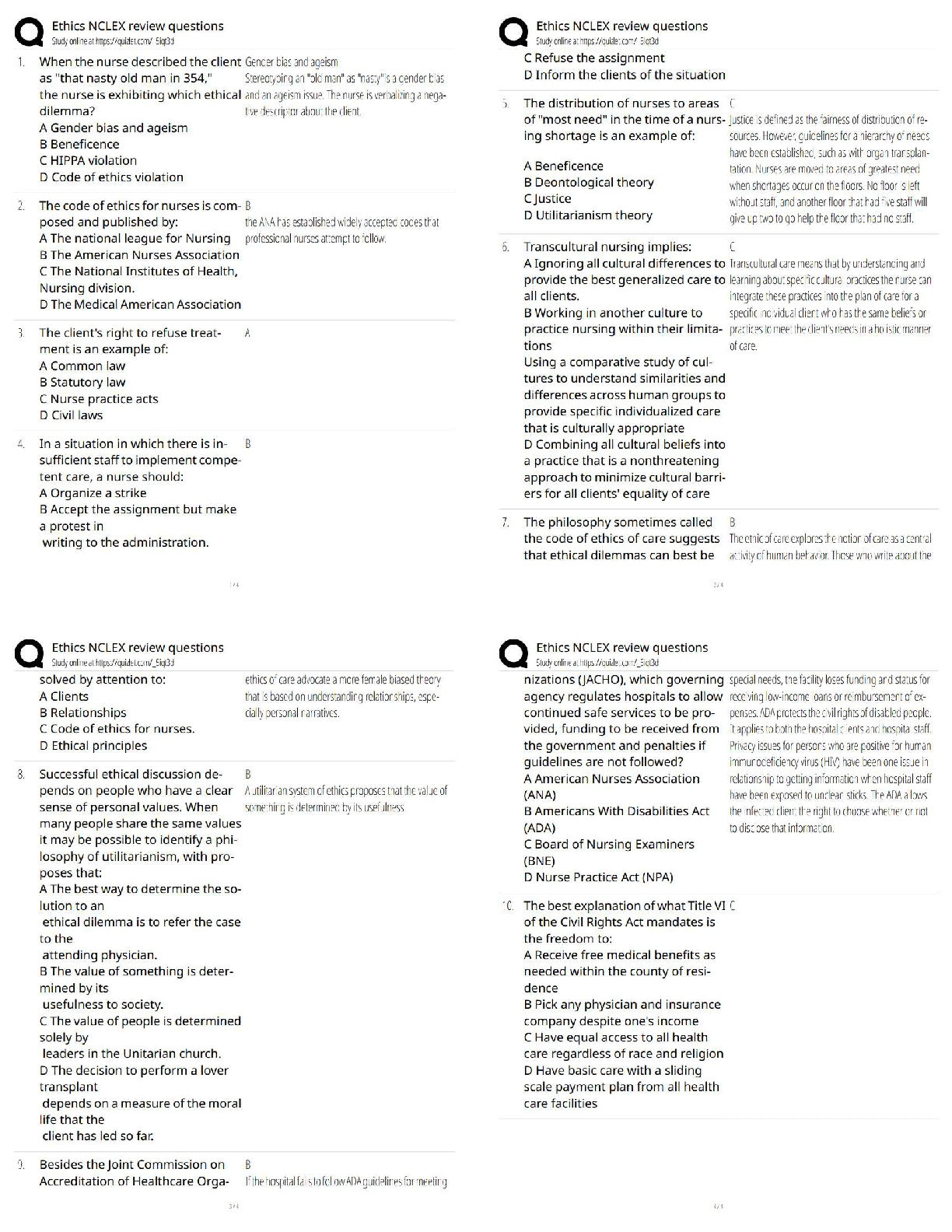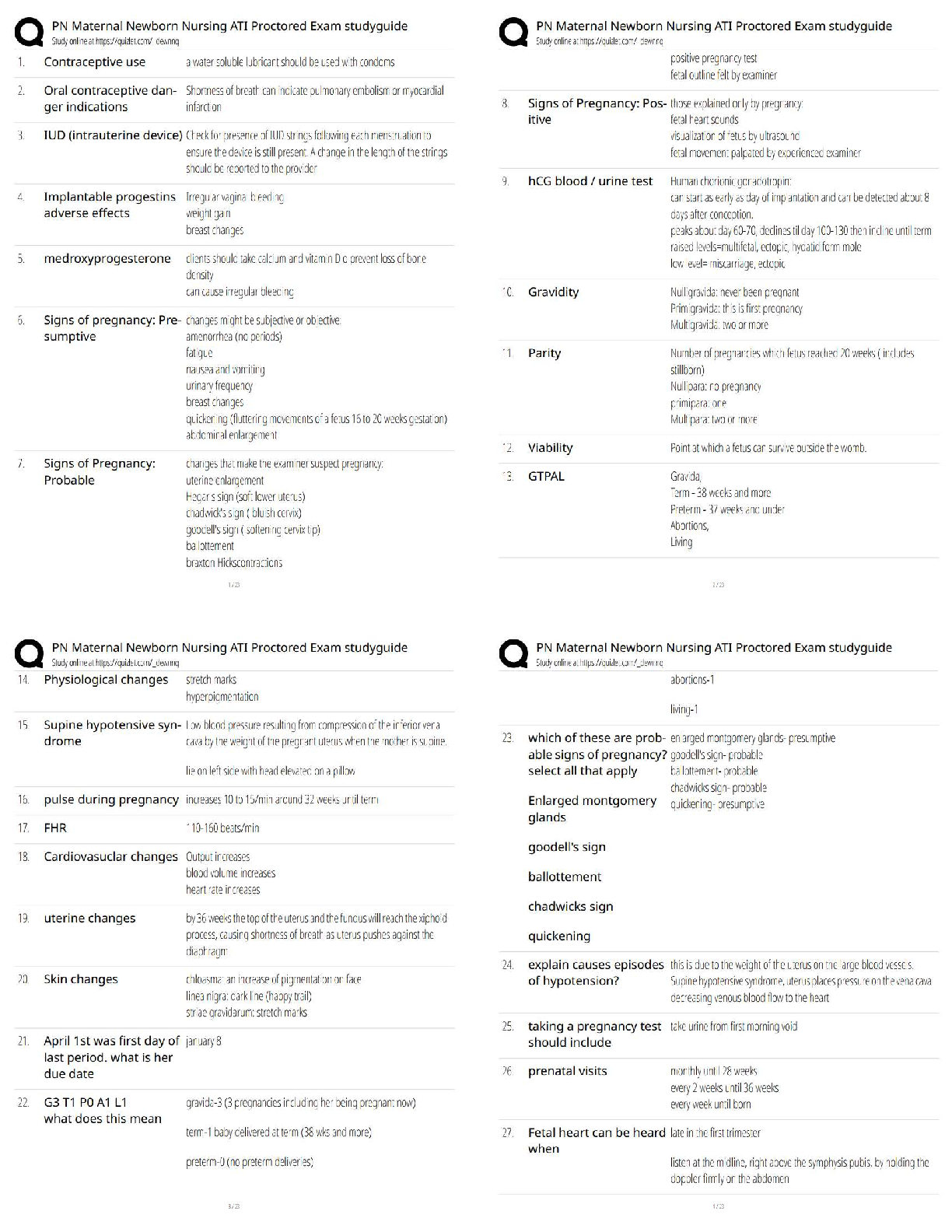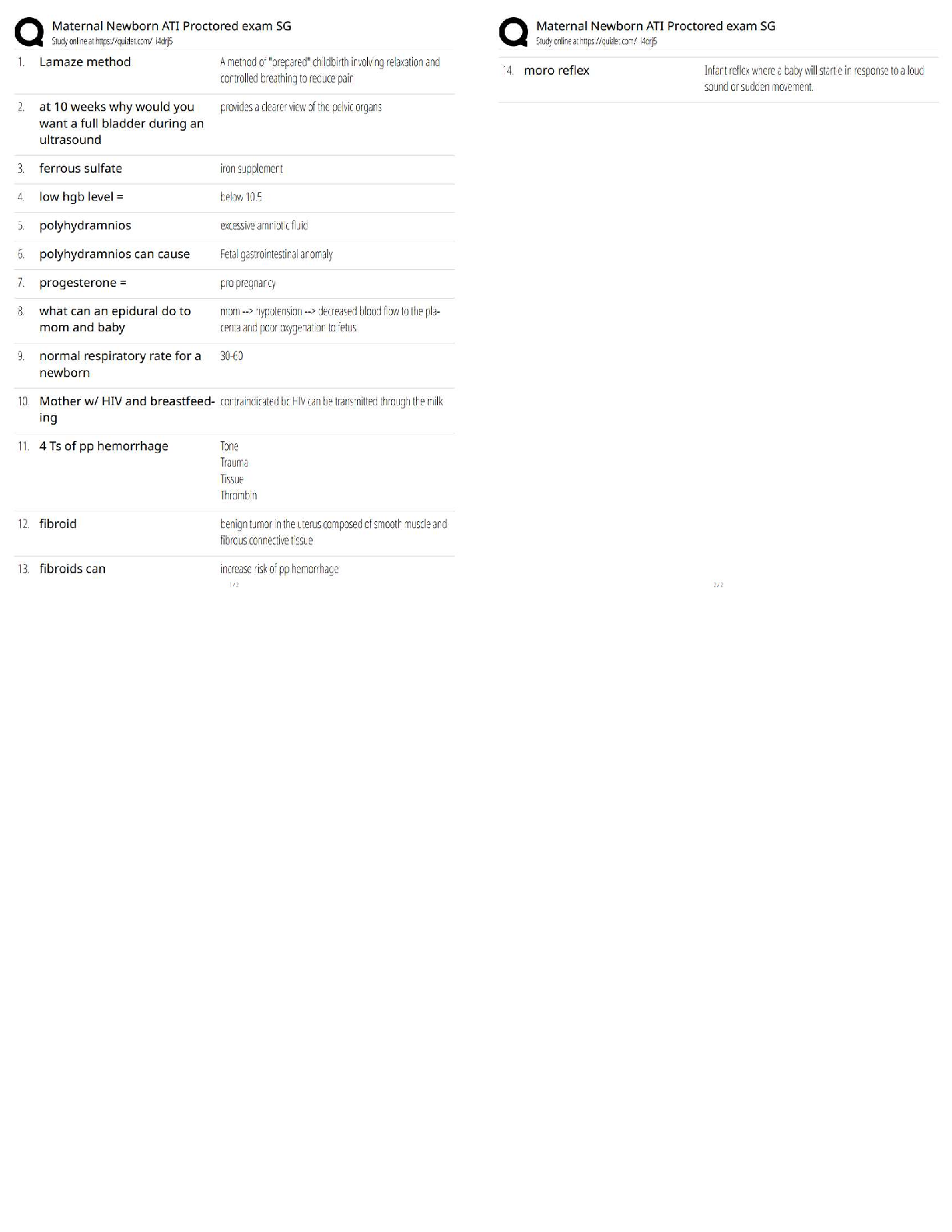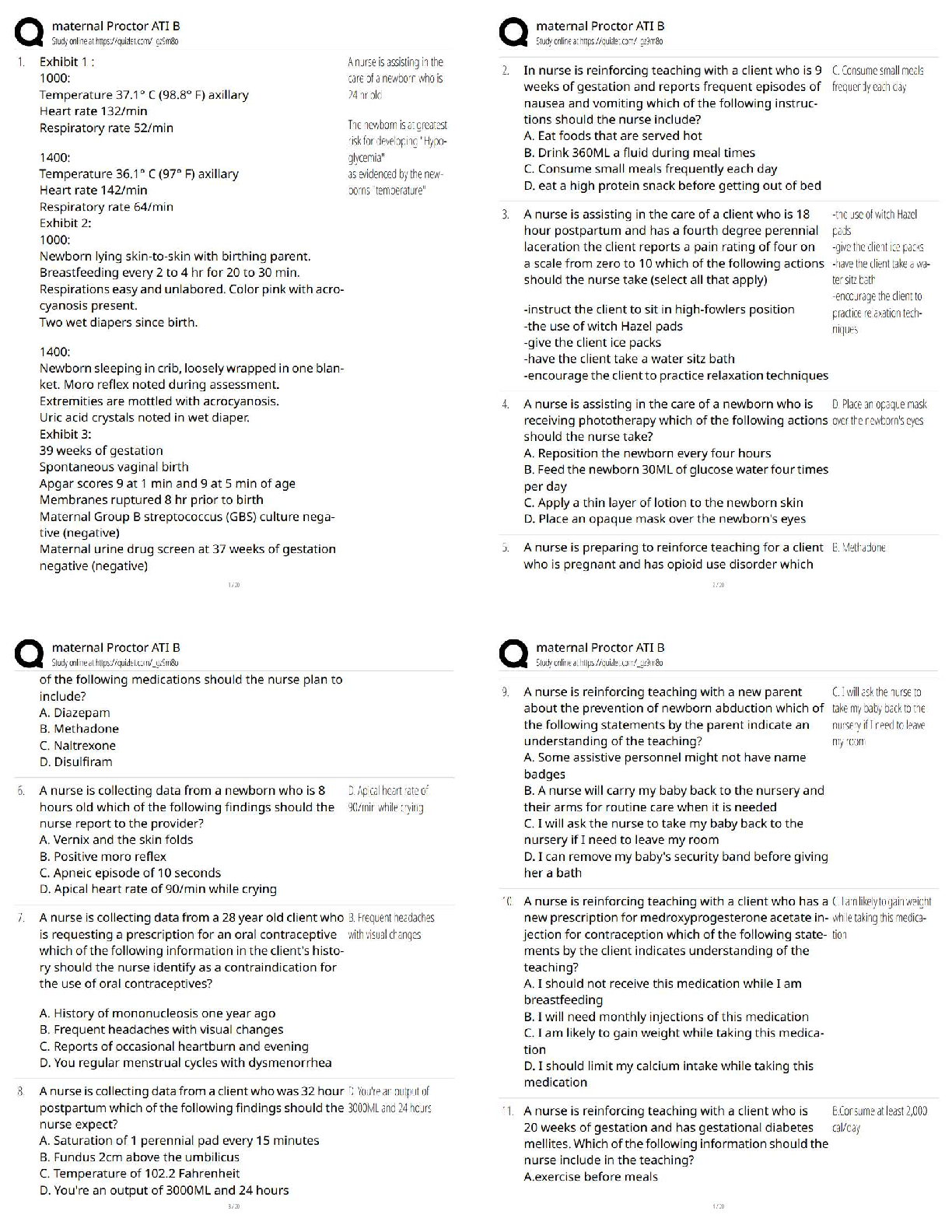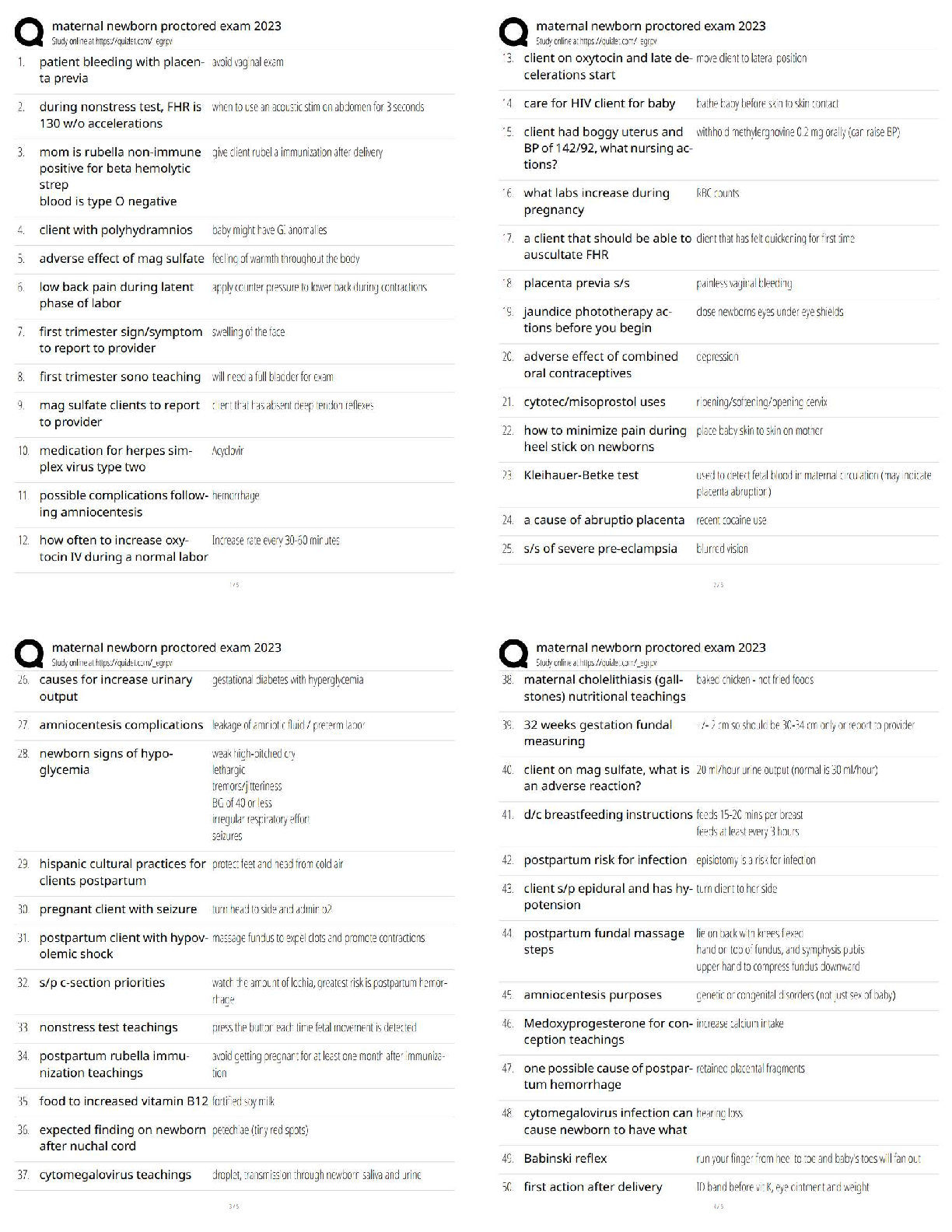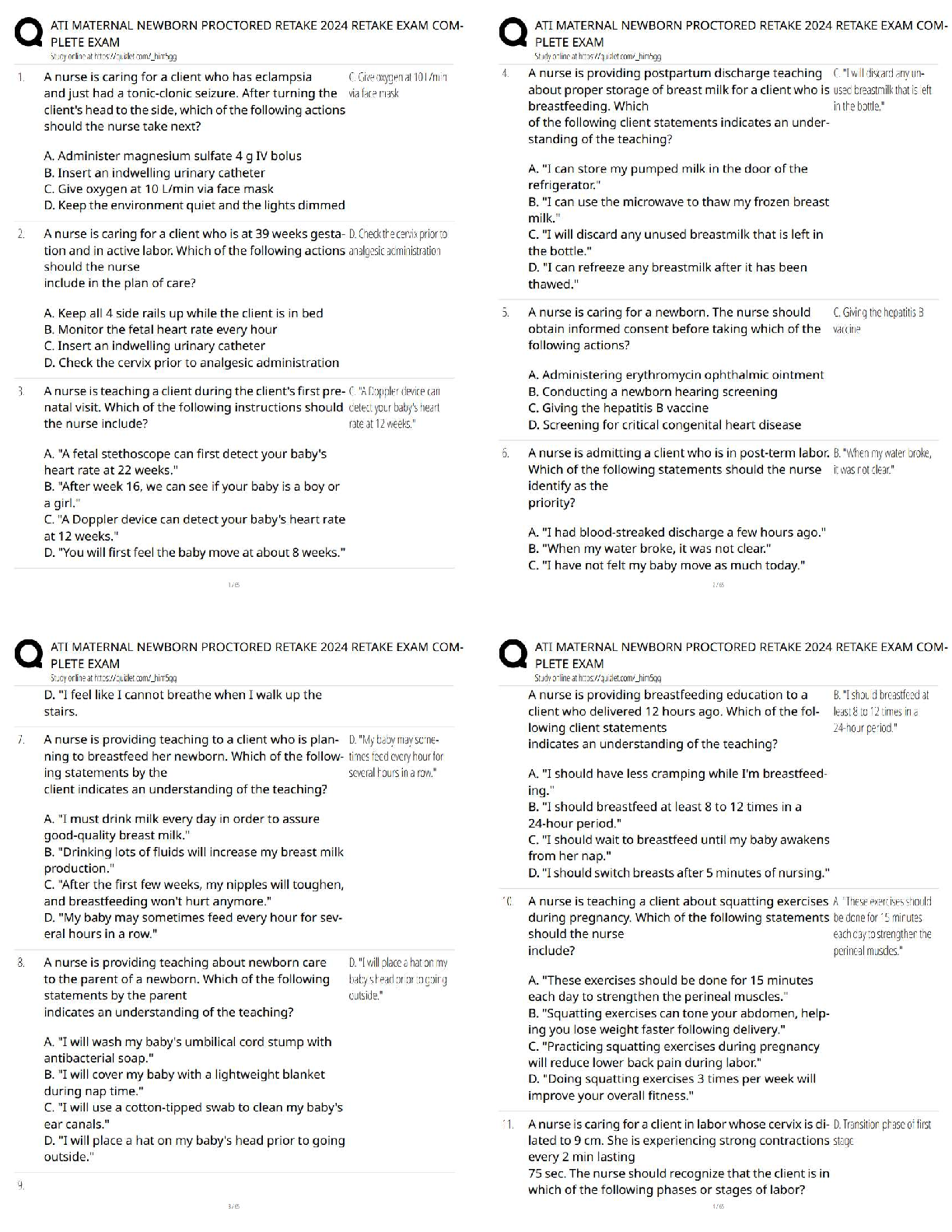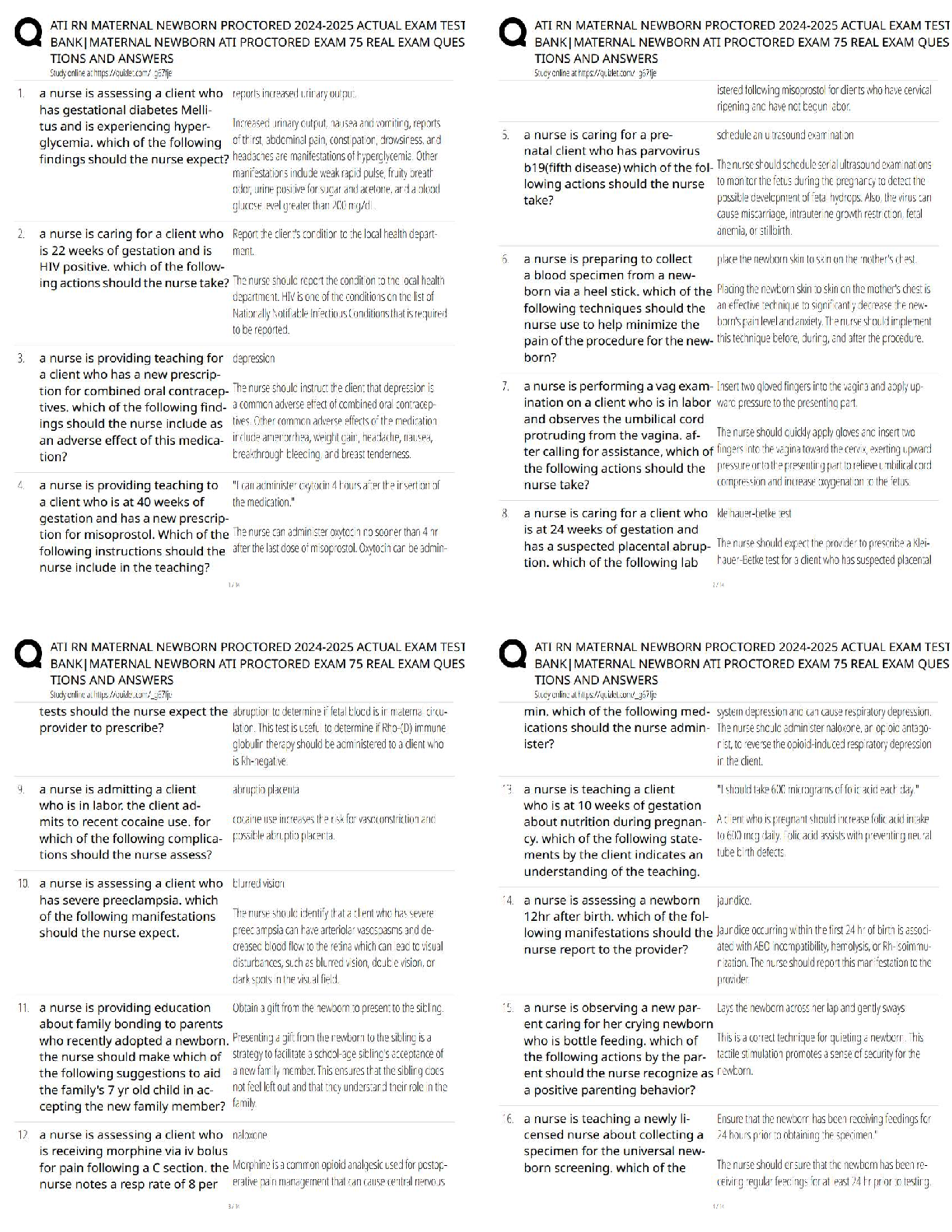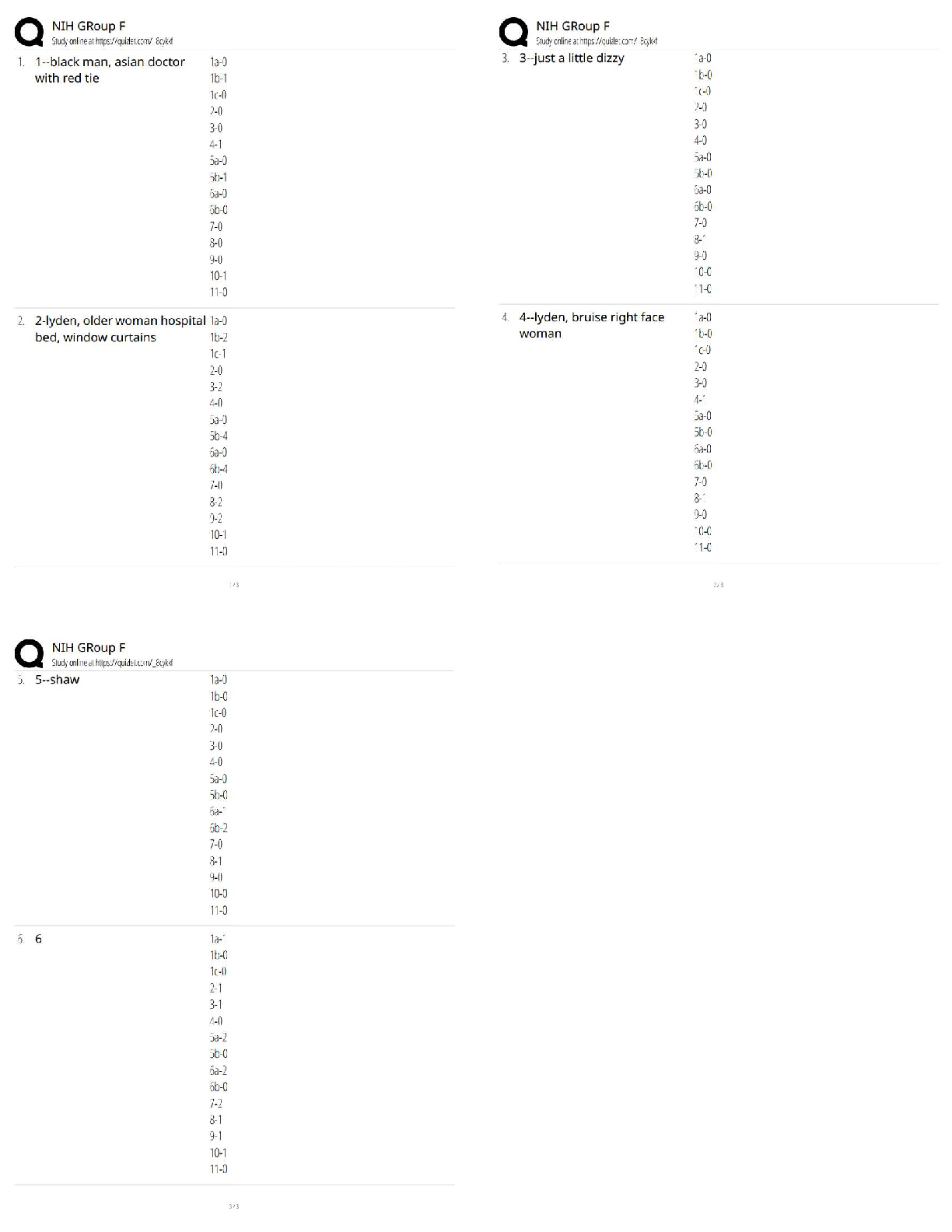English > QUESTIONS & ANSWERS > LSAT: Logical Reasoning. Top Questions and answers, rated A+ (All)
LSAT: Logical Reasoning. Top Questions and answers, rated A+
Document Content and Description Below
LSAT: Logical Reasoning. Top Questions and answers, rated A+ What are the basic steps to approaching a question? - ✔✔1. Stop to consider what the question is really asking 2. Decide how I'll ... approach the question (ex. organizing info in a table) 3. After deciding how I'll approach the question, skim through the answer choices and eliminate any that are obviously in the wrong "direction" 4. Use the approach you picked When is the adversarial approach used? How? - ✔✔When you've narrowed a question down between two equally good choices. 1. Attack the choice that seems the most likely to be true 2. Try to defend the answer choice you think is not true 3. Defend the answer choice I like 4. Attack the answer choice I do not like Should I always look through all the answer choices? - ✔✔Yes What is the question stem? - ✔✔The sentence that states the question LR:What are the four things I must do to succeed with logical reasoning questions? - ✔✔1. Understand the structure of logical arguments 2. Understand the types of questions stems ask 3. Understand the types of arguments that logical reasoning questions test 4. Master the strategies for narrowing down the correct answer LR: How should I pick questions for LR? - ✔✔First, go page by page picking the easiest questions, then start over again on the first page and pick the second easiest questions. Cold guess on the remaining questions LR: What must all logical arguments include? - ✔✔Facts that are accepted as true by all parties and some new facts derived from the established facts LR: What are the established facts that both parties agree on called? - ✔✔Premises LR: Choose the premise(s), assumption, and conclusion. Also, explained whey Geroge's argument is flawed: Geroge: All white cats are deaf, right? You: I guess so George: And Little Binky is white, right? You: Yes Geroge: Then Little Binky must be deaf You: Okay, I agree - ✔✔Premises: Little Binkey is white; All white cats are deaf Conclusion: Little Binkey is deaf Assumption: Little Binkey is a cat Why its flawed: Although Geroge uses a correct form of logic, it is applied incorrectly because, given the assumption that Little Binkey is a cat, it does not establish that he is a white cat. LR: If a question says, "which of the following IF TRUE..." should I automatically accept all of the answer choices as ture? What if it says "If the above is true.." should I accept the set up as true? - ✔✔Yes and yes; Accept the answer choices as true and consider how they affect the argument and accept the premises in the set up as true LR: What is an assumption? - ✔✔A premise that is necessary to make an argument work but is not stated. LR: Can premises stated in a question be assumptions? - ✔✔No LR: What is an inference? - ✔✔The process of making a logical argument and arriving at a conclusion. LR: If a question ask: "Which of the following can be inferred?" , what is it asking? - ✔✔What can be concluded based on valid logic through the given premises? LR: Does an inference have to be the main conclusion of an argument? - ✔✔No, only a conclusion. LR: What are the two ways in which a logical argument may be flawed? - ✔✔1. It may use valid logic but do so incorrectly 2. It may use invalid logic LR: What are the two broad categories of logical arguments? - ✔✔Deductive and inductive LR: What are deductive arguments? - ✔✔Arguments that present absolute rules. Ex: "If you go to the store you will be late for school" or "All dogs named Cinnamon are red." LR: What are characteristics of deductive argument? - ✔✔It deals with an idealized universe in which certain things are absolute. You have to understand and apply absolute rules in a logical way. LR: What are the two types of deductive arguments? - ✔✔Set and if/then LR: What are characteristics of set deductive arguments? - ✔✔It places people and/or objects in sets (established groups) and states certain characteristics about that set. Ex. All baseball players have red sports cars. LR: If I were to use a circle and arrow diagram to help me with this set deductive argument, what would I circle and what would the arrows point to? : "Any small business is an entrepreneurial venture. All entrepreneurial ventures are risky. John's business is a small business. Therefore, John's business is risky." - ✔✔John's business is the smallest circle; around it is a circle for small businesses; around small businesses is a circle for entrepreneurial ventures, with an arrow pointing to risky. LR: Both If/then and set deductive arguments deal in absolutes, but what is different? - ✔✔Set questions deal with absolute CHARACTERISTICS. If/then deals with absolute RULES about the universe, Ex. "If it rains, it pours." LR: What is the "determining factor" of an if/then argument? What is the result? - ✔✔The independent variable is known as the deterring factor. The dependent variable is the dependent variable. LR: What is the set up of if/then arguments? - ✔✔Gives you a rule and then the stem ask you a question in which you must apply it. LR: Is this logic valid? Rule: If it rains, then the sidewalk will be wet. Test: It is not raining, so what must be true? Answer: The sidewalk is not wet - ✔✔No. Something else could wet the sidewalk (-a to -b; negated) LR: Is this valid logic: Rule: If it rains, then the sidewalk will be wet Test: The sidewalk is wet. What must be true Answer: It has rained - ✔✔No. Something else could have wet the sidewalk (b to a; flipped) LR: Is this valid logic? Rule: If it rains, then the sidewalk will be wet Test: The sidewalk is not wet. What must be true Answer: It has not rained - ✔✔Yes (-b to -a;flipped and negated=contrapostive) LR: What is a contrapositive? - ✔✔A valid statement of logic that switches the original if/then statement around the flips each side's sign: Ex. If you don't eat, then you will be hungry. (-Eat -> hungry) Contrapositive: If I am hungry, then I have not eaten (Hungry -> -eaten) LR: Apply the three step process for solving an if/then question: "The Empire will crumble only if the educated become complacent." - ✔✔1. Identify the two elements that are being related: empire crumbling; educated becoming complacent 2. Determine the determining factor and result: Determining factor: Educated become complacent. Result: The empire crumbles 3. Determine whether it is the presence or the absence of the determining factor that is important. Display the if/then mathematically. -Is it saying that the educated becoming complacent guarantees that the empire will crumble or as long as the educated do not become complacent (absence of the educated becoming complacent) the empire will not crumble? LR: In if/then questions, what does unless imply? - ✔✔The absence of the determining factor predicts the absence of intended result. Ex. You will not get into law school unless you take the LSAT (Unless presence of A, the absence of B). This is not to say the the presence of the LSAT will get you into law school. LR: What does the expression "only if" indicate? - ✔✔The absence of the determining factor predicts absence of intended result. Ex. You will get into law school only if you take the LSAT (Only if presence A, then absence B). The presence of the LSAT does not garuntee you will get in LR: What is the simplification of this statement? "If, and only if, you get accepted into law school will you start law classes in the fall." - ✔✔If you do not get accepted, you will not start and if you do get accepted, you will start. LR: What is a trigger? - ✔✔An expression in an if/then question that garuntees a certain result. LR: When it relates to the law school example and its contrapositive, which are the triggers? - ✔✔Not taking LSAT; Getting into law school (A, -B) LR: Can we conclude anything about John considering: "Anyone who drinks milk regularly does not have a calcium deficiency. John does not have a calcium deficiency. - ✔✔Drinking milk regularly and having a calcium deficiency are triggers. John does not match either of these, so we cannot. LR: How can I determine whether something is necessary or sufficent? - ✔✔- If it is the absence of the determining factor that guarantees a result, then it is necessary but not sufficient. Ex. LSAT is necessary for getting into law school but does not guarantee its acceptance. - Something that is sufficient is not only necessary, but gguaranteesthe result in itself. LR: What are the conditions for necessary or sufficient in symbols? - ✔✔Sufficient A→B (presence of A) Necessary -A→-B (absence of A) Both If and only if: -A→-B (absence) and A→B (presence) LR: Is this argument valid syllogism? "If Bruce rants on Cena tonight, then I laugh. If Ryback is on, then I laugh." - ✔✔No. I went from A →B then C→B. If it were valid I would have had to gone from A [Show More]
Last updated: 2 years ago
Preview 1 out of 26 pages

Buy this document to get the full access instantly
Instant Download Access after purchase
Buy NowInstant download
We Accept:

Also available in bundle (1)
Click Below to Access Bundle(s)

LSAT Bundle, latest versions/ Exam Predictors.
LSAT Prep Questions & Answers. Latest Version, Verified Predictor questions.
By Topmark 2 years ago
$30
9
Reviews( 0 )
$11.00
Can't find what you want? Try our AI powered Search
Document information
Connected school, study & course
About the document
Uploaded On
Mar 12, 2023
Number of pages
26
Written in
All
Additional information
This document has been written for:
Uploaded
Mar 12, 2023
Downloads
0
Views
133

